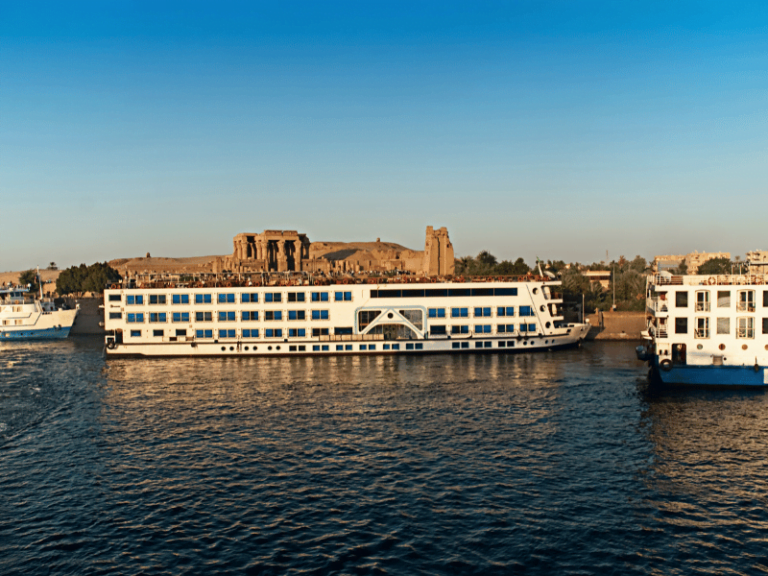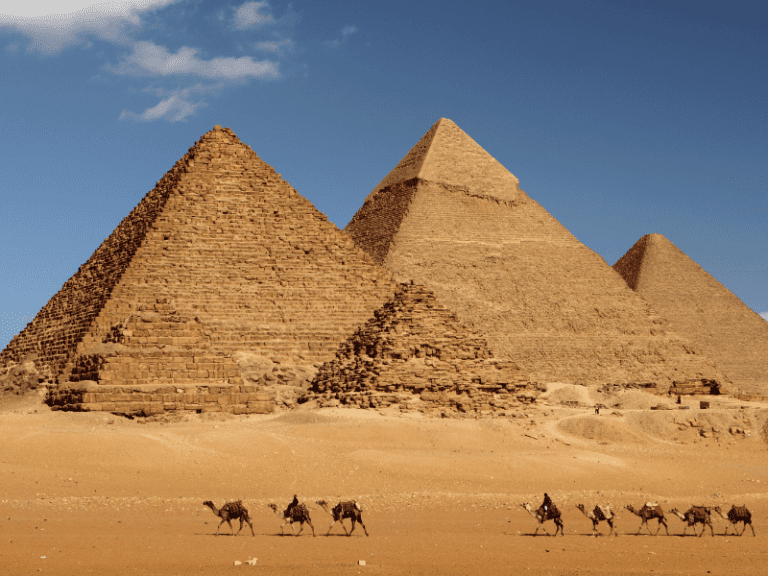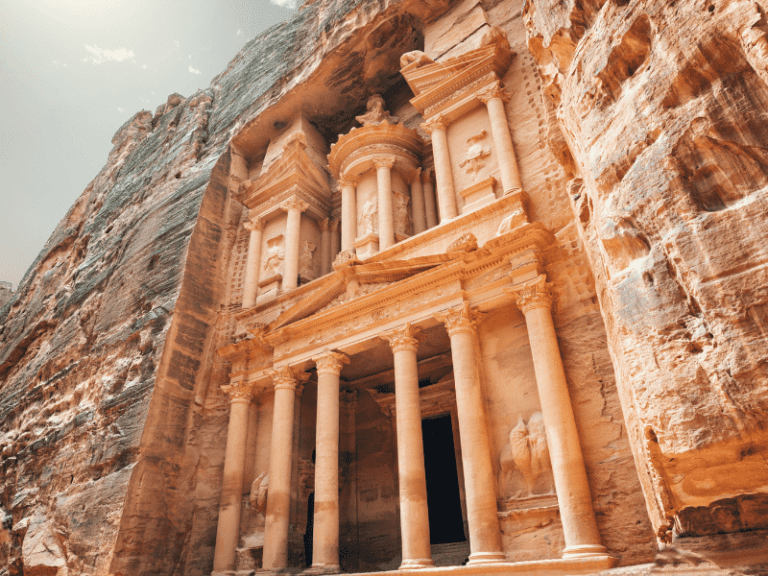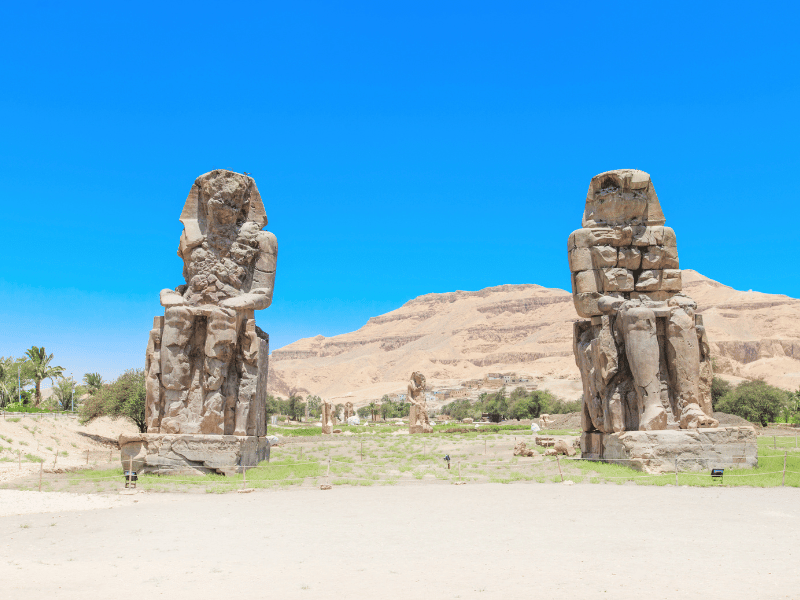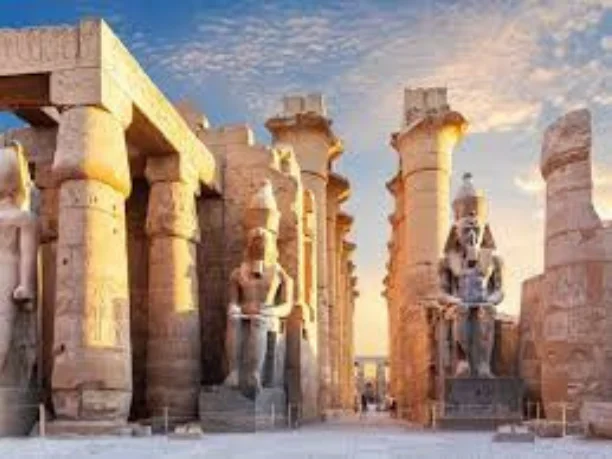Ancient Egypt remains one of the most captivating civilizations in history, with its remarkable achievements, cultural richness, and mysterious legacy. Visitors who travel to Egypt today can immerse themselves in the grandeur of ancient monuments like the Pyramids of Giza, the Sphinx, and the temples of Luxor. Whether you’re considering a tour package with Travel Joy Egypt or simply interested in learning about Egypt’s ancient history, there are fascinating facts that will give you a deeper appreciation of this ancient land. From impressive engineering feats to spiritual beliefs, here are some fascinating facts about Ancient Egypt.
The Great Pyramids Were Built as Tombs
The Pyramids of Giza are one of the Seven Wonders of the Ancient World and remain a monumental symbol of ancient Egyptian achievement. Contrary to popular belief, the pyramids were not built by slaves, but rather by skilled workers and laborers who were well-fed and housed in nearby workers’ villages.
- Purpose of the Pyramids: The primary purpose of the pyramids was to serve as tombs for pharaohs, ensuring their safe passage into the afterlife.
- Construction Feats: The Great Pyramid, built for Pharaoh Khufu, is made of over 2 million stone blocks and originally stood at 481 feet (146 meters).
- Alignment with the Stars: The pyramids were precisely aligned with the stars, reflecting the Egyptians’ deep understanding of astronomy.
Exploring the Pyramids of Giza as part of your Travel Joy Egypt tour allows you to uncover the ancient craftsmanship that went into building these extraordinary structures.
The Ancient Egyptians Were Master Engineers
The ancient Egyptians were not just great builders; they were also exceptional engineers. They developed advanced techniques that allowed them to create some of the most enduring monuments in the world.
- Shaduf: The Egyptians invented a simple, yet effective, water-lifting device known as the shaduf, which helped them irrigate crops in the dry desert.
- The Sphinx’s Construction: The Sphinx, with its massive lion’s body and human head, was carved directly from the limestone bedrock, showcasing the Egyptians’ impressive skills in sculpture and construction.
- The Egyptian Calendar: The Egyptians created a solar calendar, which helped them organize their agricultural activities and religious festivals. This calendar is the precursor to the one used today.
Travel Joy Egypt’s tours provide visitors with the opportunity to learn about these remarkable engineering feats while visiting sites like the Giza Plateau and the Nile River.
Hieroglyphs: The Written Language of the Gods
Hieroglyphic writing is one of the most iconic elements of ancient Egyptian culture. The complex system of symbols was used for religious texts, royal decrees, and monumental inscriptions, often seen on tombs and temple walls.
- Sacred Writing: Hieroglyphs were considered sacred and believed to be a divine form of writing that connected the people with the gods.
- More Than 700 Symbols: There were over 700 symbols in the hieroglyphic system, representing objects, actions, and ideas.
- Rosetta Stone: The discovery of the Rosetta Stone in 1799 allowed scholars to decipher the hieroglyphs, unlocking ancient Egyptian texts for modern study.
A visit to the Egyptian Museum in Cairo as part of a Travel Joy Egypt tour provides the opportunity to see hieroglyphs firsthand and gain a deeper understanding of their significance.
Ancient Egypt Had a Complex Religion
Religion played a central role in the daily life of ancient Egyptians, influencing everything from politics to social customs. The Egyptians were polytheistic, worshipping a wide variety of gods and goddesses who represented natural forces, concepts, and ideals.
- Major Gods: Key gods included Ra (the sun god), Osiris (god of the afterlife), Isis (goddess of magic and motherhood), and Anubis (god of mummification).
- Temples and Rituals: Temples were constructed in honor of gods and served as the center for religious rituals. These included prayers, offerings, and festivals to appease the gods and ensure cosmic order.
- Afterlife Beliefs: Egyptians believed in an afterlife and developed complex burial rituals to ensure the safe passage of the deceased into the realm of the gods.
During a Travel Joy Egypt tour, you can visit magnificent temples such as the Karnak Temple in Luxor or the Temple of Philae in Aswan to learn more about the religious practices of this ancient civilization.
The Ancient Egyptians Were Pioneers in Medicine
The ancient Egyptians are considered pioneers in the field of medicine. They were among the first to develop medical practices that included surgery, dentistry, and even prosthetics.
- Surgical Techniques: Egyptians practiced surgery and had knowledge of anatomy, often performing procedures such as trepanation (drilling holes in the skull) to treat head injuries.
- Medical Texts: The Ebers Papyrus, one of the oldest surviving medical texts, provides insight into ancient Egyptian medicine and includes remedies for a wide range of ailments.
- Dentistry: The Egyptians were among the first to practice dentistry, using tools like primitive drills to treat dental issues.
A tour with Travel Joy Egypt allows you to visit sites such as the Cairo Museum, where you can see ancient medical instruments and mummies, offering a glimpse into the advanced medical knowledge of the time.
Conclusion
Ancient Egypt continues to fascinate the world with its incredible achievements in architecture, medicine, religion, and science. Whether you are standing before the towering pyramids, exploring ancient temples, or learning about the daily lives of the ancient Egyptians, there is so much to discover in this awe-inspiring land. A tour with Travel Joy Egypt allows you to explore these ancient wonders and uncover the secrets that have captivated humanity for thousands of years. The rich history and culture of Egypt are waiting to be experienced—take the journey today!






